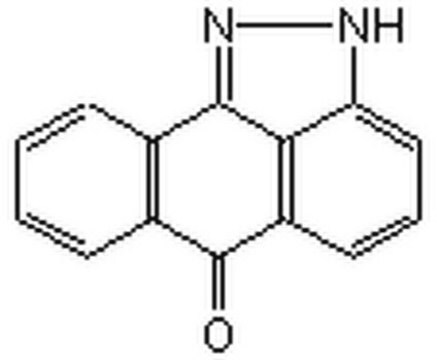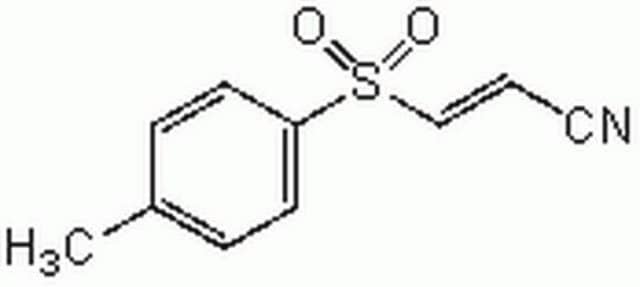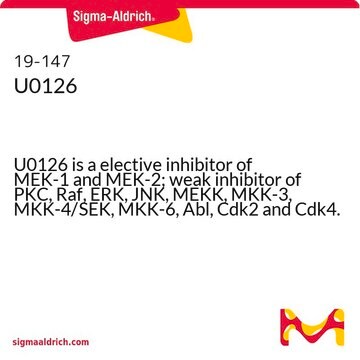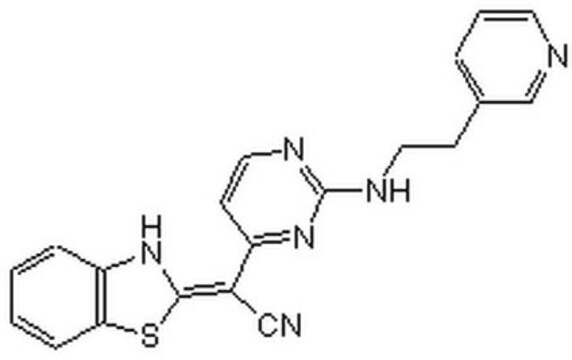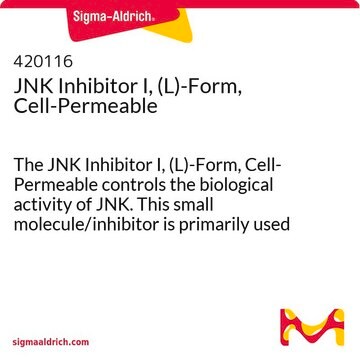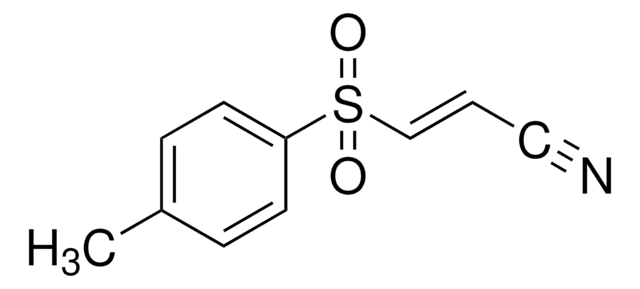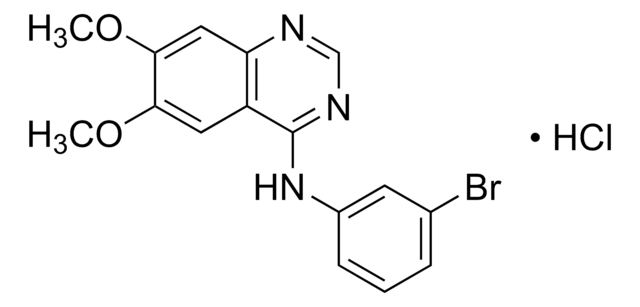S5567
SP600125
≥98% (HPLC), powder or solid, JNK inhibitor
Synonym(s):
1,9-Pyrazoloanthrone, Anthrapyrazolone
About This Item
Recommended Products
product name
SP600125, ≥98% (HPLC)
Quality Level
Assay
≥98% (HPLC)
color
yellow
solubility
DMSO: 20 mg/ml, clear to very slightly hazy, faintly yellow to yellow
H2O: insoluble
storage temp.
2-8°C
SMILES string
O=C1c2ccccc2-c3n[nH]c4cccc1c34
InChI
1S/C14H8N2O/c17-14-9-5-2-1-4-8(9)13-12-10(14)6-3-7-11(12)15-16-13/h1-7H,(H,15,16)
InChI key
ACPOUJIDANTYHO-UHFFFAOYSA-N
Gene Information
human ... JUN(3725) , MAPK10(5602) , MAPK9(5601)
Application
Biochem/physiol Actions
Storage Class Code
11 - Combustible Solids
WGK
WGK 3
Flash Point(F)
Not applicable
Flash Point(C)
Not applicable
Personal Protective Equipment
Certificates of Analysis (COA)
Search for Certificates of Analysis (COA) by entering the products Lot/Batch Number. Lot and Batch Numbers can be found on a product’s label following the words ‘Lot’ or ‘Batch’.
Already Own This Product?
Find documentation for the products that you have recently purchased in the Document Library.
Customers Also Viewed
Articles
Naive pluripotent stem cells cultured in vitro using specialized media and inhibitors mimic "ground-state" cells from blastocysts.
Naive pluripotent stem cells cultured in vitro using specialized media and inhibitors mimic "ground-state" cells from blastocysts.
Naive pluripotent stem cells cultured in vitro using specialized media and inhibitors mimic "ground-state" cells from blastocysts.
Naive pluripotent stem cells cultured in vitro using specialized media and inhibitors mimic "ground-state" cells from blastocysts.
Our team of scientists has experience in all areas of research including Life Science, Material Science, Chemical Synthesis, Chromatography, Analytical and many others.
Contact Technical Service